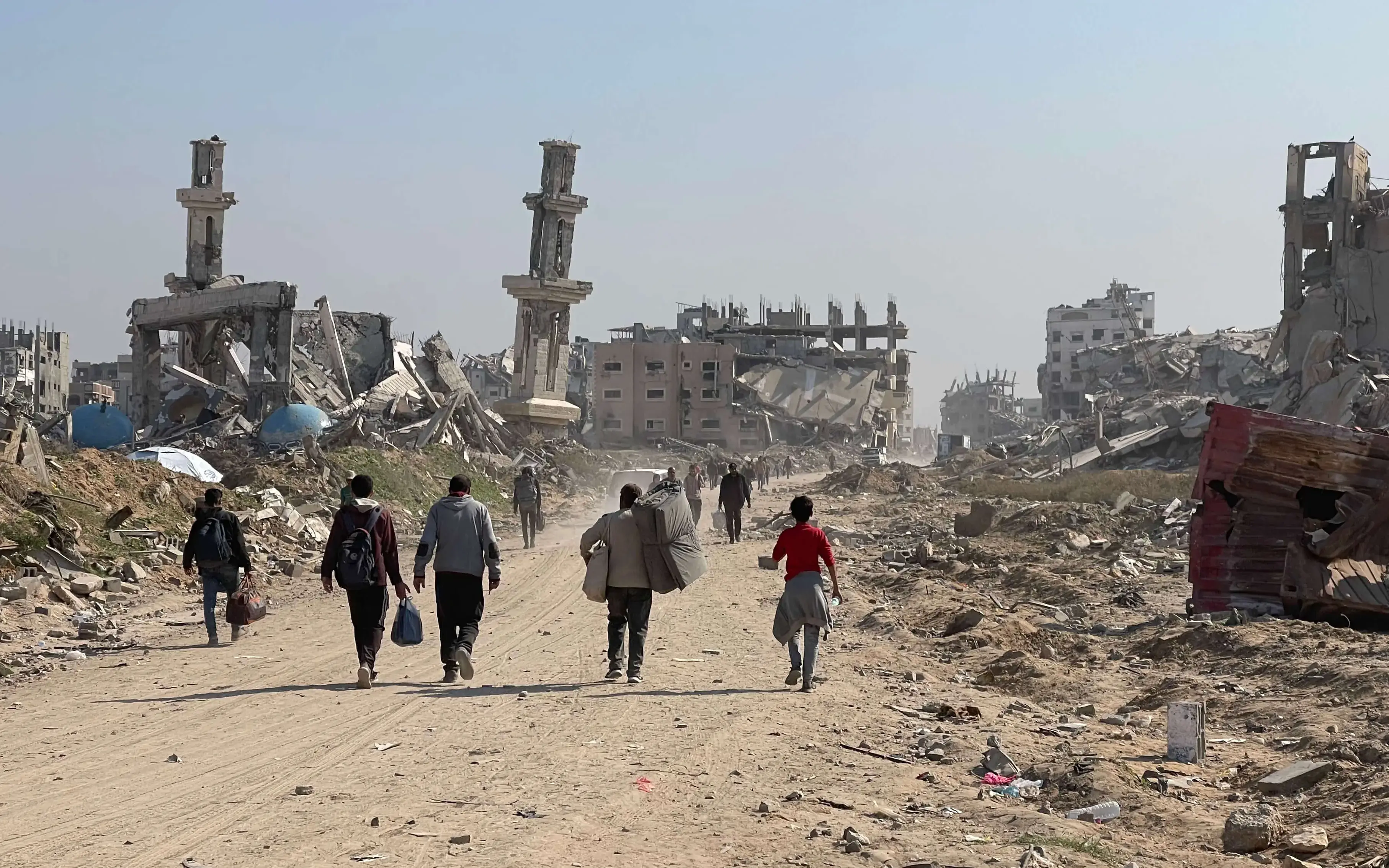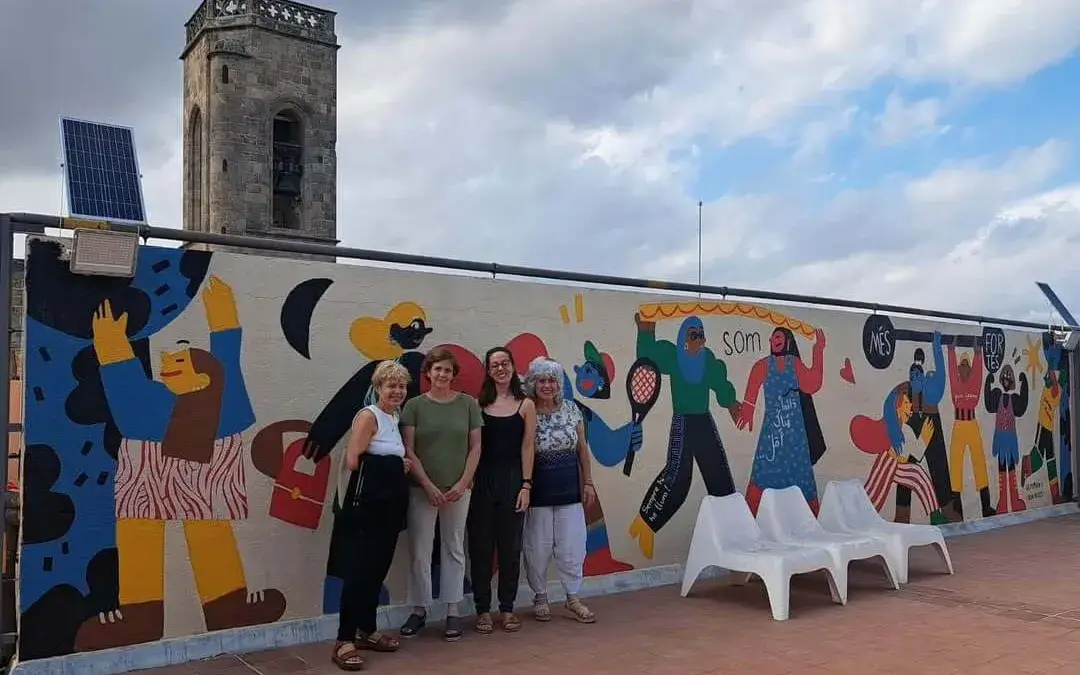‘New W.O.R.L.D.S.’: Breaking the silence and opening paths of hope for a world free of exploitation

On the occasion of World Day Against Trafficking in Persons, we learn about a European project, in which the Surt Foundation participates, to support women survivors of trafficking and help them build a new life project.
Human trafficking is a scourge that, under thick layers of invisibility and silence, impacts the lives of millions of people around the world. And it does so especially on women, the main victims of trafficking for the purpose of sexual exploitation. In fact, and despite the word often evoking realities of a distant past, many experts refer to human trafficking as “the slavery of the 21st century.”
To support and accompany women survivors of this phenomenon, the project ‘New W.O.R.L.D.S.’ (NEW paths for trafficked WOmen Reintegration through Labour and personal Development Services) was launched in 2023. Since then, more than a hundred women from various European countries who have survived trafficking have been involved in this initiative, co-funded by the Asylum, Migration and Integration Fund (AMIF) of the European Union.
The development of ‘New W.O.R.L.D.S.’ has involved the contribution and participation of seven organisations from countries such as Italy, France, Greece, and also Catalonia, represented in the project by the Surt Foundation. The main objective of the project has been to provide support and tools for the social and labour insertion of affected women, preventing the risk of re-trafficking. To do so, professional training programs, innovative digital tools and psychosocial support strategies have been implemented.
In addition to Surt, ‘New W.O.R.L.D.S.’ has been made possible thanks to the work of the organisations Soleterre and Coop Lotta and ISMU (Italy), FTDA (France), and IASIS and EILD (Greece). The partners have met in three transnational meetings —in Italy, France and Greece— and in regular online sessions to exchange practices and assess results.
The Surt Foundation focuses on survivors’ recovery
From this joint work, several materials have been created, such as the guide ‘Tools on effective reintegration measures’, which proposes a checklist to identify strengths and areas for improvement in services. It includes a set of indicators to measure the status of women upon leaving the program, an interview format to collect qualitative testimonies, and a methodological guide for interviewers, as well as a model for continuous monitoring of each pathway.
One of the key tools of the project is the ISMU Monitoring Kit, a digital platform that allows individual tracking of each participant, monitoring both the evolution of their social and labour integration and their emotional well-being. Likewise, e-learning modules have been created and made available in four languages, aimed at professionals and sector organisations so they can incorporate the evidence-based practices and methodologies tested in the different national contexts into their programs.
“From Surt, we have focused mainly on recovery, and not so much on re-trafficking, which, based on the research process carried out within the framework of the project, we have seen has less incidence in Catalonia,” emphasizes Carla Rodríguez, project coordinator in Catalonia, who explains that the work has been centered on rebuilding the lives of survivors rather than reviewing their past experiences.
Thus, in Catalonia, the project has distributed its actions between legal advice, psychological support and job orientation. This year, twelve women have received ongoing psychosocial support, forty-two have accessed legal procedure counselling, thirty-five have been oriented towards local services, and thirty-six have participated in individualised professional training, according to data provided by the Foundation.
A large number of the women who have taken part in the project come from the RAI program, aimed at women survivors of violence such as human trafficking, which works on skills and competences so that women can recover, orient themselves towards a profession and approach the labour market. In addition, many of them have also participated in other Surt initiatives, such as the ‘Tastet d’oficis’ service, in order to promote processes of social and labour inclusion.
A mentoring programme to improve accompaniment
One of the most impactful innovations introduced by Surt has been the mentoring programme, which paired each new participant with a woman who had already completed her reintegration process. “The mentors were very motivated, eager to contribute their experience to show the women that it is possible to move forward and get out of this situation,” says Rodríguez. In fact, this resource stems from the organisation’s strong will to empathise with the life paths of the survivors and to work with them from multiple perspectives, beyond job placement.
Rodríguez states that “the reception by both mentors and mentees has been excellent” and that, after training and promoting this figure, they have observed significant growth in the mentors, both in personal organisation and in confidence when sharing experiences. This support has not only provided strategies for job searching but has also encouraged decision-making in key moments — a skill that often marks the decisive leap towards reintegration.
“Much of the work developed between these women and mentors has also consisted in strengthening the sense of group and network. In addition, of course, addressing elements of the employment pathway, such as the first work experience, how they felt in job interviews or how they faced certain episodes of gender discrimination in the workplace,” details Rodríguez.
The programme has yielded very positive results for the mentored women, and it was observed that they felt much more confident and open to collaborate and share with women who had gone through the same situation than with professionals. This also led to increased involvement and greater proactivity when it came to participating in recreational activities and sharing moments beyond the scheduled sessions. “This initiative and the drive to start building a network has been considered a clear success indicator,” expresses the Surt member.
Initiatives for professionals and awareness-raising
Broadening the focus, the project has also resulted in a guide of non-conventional psychotherapeutic and counselling tools, including practical proposals such as art therapy, organised by Surt on its own initiative and later validated by the project’s management.
As Rodríguez explains, “this is not psychotherapy, but rather an invitation to self-explore through the arts,” stresses the coordinator, who explains that the sessions were opened to other women with different issues because they considered it interesting to bring together diverse profiles. Beyond this, the guide aims to help professionals diversify available resources and enhance the emotional well-being of survivors in a safe environment.
Another noteworthy initiative under ‘New W.O.R.L.D.S.’ has been the podcast ‘Free Voices. Paths of Resilience’, conceived as a commitment to work on and promote social awareness regarding this scourge that is human trafficking. Professionals and experts in the field wrote the scripts for the five podcast episodes based on real experiences of women survivors of trafficking collected in interviews.
Although it did not involve direct participation from the women, the podcast was conceived within the project as a communication tool to convey to society what human trafficking is and what consequences and impacts victims may suffer. In this regard, Carla Rodríguez believes that “it is extremely relevant to give visibility and exposure to the phenomenon, since it is still largely unknown,” and therefore calls for efforts from “administrations, institutions and media to give space to the fight against this issue.”
Through all these actions —and others— ‘New W.O.R.L.D.S.’ has established an integrated approach for the recovery and reintegration of women survivors of trafficking, with strategies combining emotional support, legal accompaniment and employment orientation. The project has made it possible to develop innovative methodologies, strengthen collaboration among European organisations and, above all, place the needs and voices of women at the centre.
Although the project has just ended, the resources created —such as the training platform and the Monitoring Kit, among others— will remain available to continue promoting women’s reintegration and providing useful tools for professionals and organisations everywhere to help put an end to this modern-day slavery that is human trafficking.





Add new comment